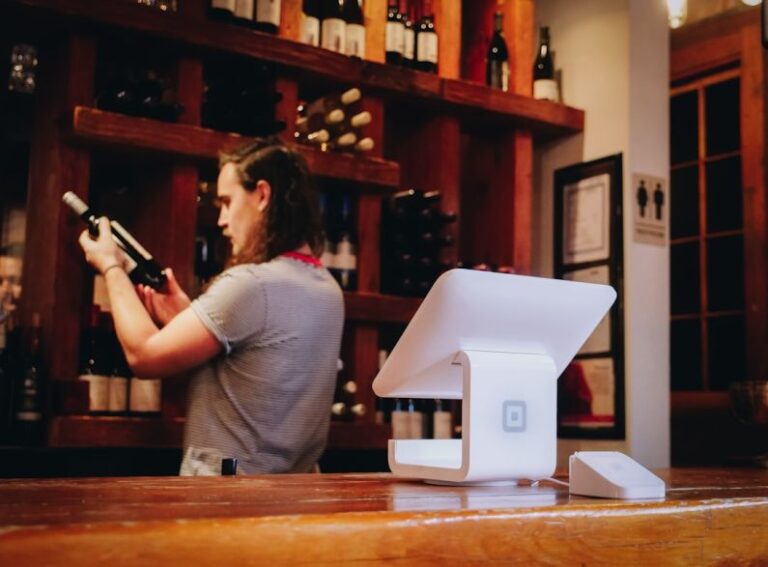The Future of E-commerce Logistics: Trends and Predictions
E-commerce has revolutionized the way we shop, making it more convenient for consumers to purchase goods online and have them delivered right to their doorstep. As the e-commerce industry continues to grow rapidly, so does the need for efficient and innovative logistics solutions to meet the increasing demands of online shoppers. In this article, we will delve into the trends and predictions shaping the future of e-commerce logistics.
Eco-friendly Delivery Options
Sustainability is no longer just a buzzword; it has become a crucial factor in consumers’ purchasing decisions. As environmental awareness grows, e-commerce companies are under pressure to adopt eco-friendly practices in their logistics operations. One of the emerging trends in e-commerce logistics is the adoption of sustainable delivery options, such as electric vehicles, bicycle couriers, and even drones for last-mile deliveries. These initiatives not only reduce the carbon footprint of e-commerce businesses but also appeal to environmentally conscious consumers.
Faster and More Efficient Last-Mile Delivery
Last-mile delivery is often the most challenging and costly part of the logistics process. With the rise of same-day and next-day delivery expectations among consumers, e-commerce companies are investing in technologies like route optimization software, autonomous vehicles, and micro-fulfillment centers to improve the speed and efficiency of last-mile deliveries. Predictive analytics and AI-powered algorithms are also being used to forecast demand patterns and optimize delivery routes, ensuring that packages reach customers in the shortest possible time.
Warehousing Innovations
Warehousing plays a critical role in e-commerce logistics, with the need for fast order fulfillment and inventory management becoming increasingly important. To meet these demands, e-commerce companies are turning to automation and robotics to streamline warehouse operations. Automated picking systems, robotic sorters, and autonomous forklifts are being deployed to increase efficiency and reduce human error in warehouses. Additionally, the rise of micro-fulfillment centers located closer to urban areas is enabling faster order processing and reducing delivery times for customers.
Collaborative Logistics Networks
Collaboration is key to overcoming the challenges of e-commerce logistics, particularly in a competitive market where speed and reliability are paramount. E-commerce companies are forming partnerships with third-party logistics providers, sharing resources, and leveraging each other’s strengths to create collaborative logistics networks. By pooling their expertise and infrastructure, companies can optimize their supply chains, reduce costs, and improve the overall customer experience. Collaborative logistics networks also enable e-commerce businesses to scale their operations quickly and efficiently to meet growing demand.
Personalized Delivery Experiences
In the age of personalization, consumers expect tailored experiences in every aspect of their shopping journey, including delivery. E-commerce companies are increasingly offering personalized delivery options to cater to individual preferences and schedules. These include flexible delivery windows, real-time tracking, and the ability to reroute packages to alternative locations. By providing personalized delivery experiences, e-commerce businesses can enhance customer satisfaction, build brand loyalty, and differentiate themselves in a crowded market.
The Rise of Omnichannel Logistics
Omnichannel retailing, which integrates online and offline channels seamlessly, is becoming the new norm in e-commerce. As consumers demand greater flexibility and convenience in how they shop, e-commerce companies are adopting omnichannel logistics strategies to provide a cohesive shopping experience across all touchpoints. This includes enabling customers to buy online and pick up in-store, return items to physical locations, and access inventory information in real-time. By aligning their logistics operations with omnichannel retailing, e-commerce businesses can offer a more holistic and integrated shopping experience that meets the evolving needs of modern consumers.
Innovations in Reverse Logistics
Reverse logistics, the process of handling returns and exchanges, is a critical aspect of e-commerce logistics that can impact customer satisfaction and brand reputation. E-commerce companies are investing in innovative solutions to streamline reverse logistics operations, such as self-service return portals, automated return processing, and advanced inventory management systems. By making the returns process more efficient and transparent, businesses can build trust with customers and turn a potential negative experience into a positive one.






